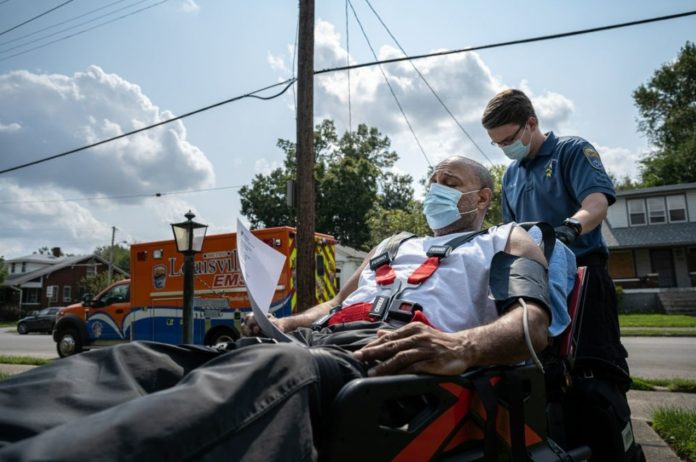The findings, published in Microbiology Spectrum, found that approximately 90 percent of participants produced spike and nucleocapsid antibody responses, and all but one had persistent antibody levels at follow up.
Between three and six months after the initial infection, the researchers studied roughly 130 individuals with PCR-confirmed COVID-19 disease. Three patients were admitted to the hospital, while the rest were treated as outpatients. All suffered from a mild infection, which manifested as headaches, chills, and loss of taste or smell.
“Previously, there was a lot of concern that only those with severe COVID-19 produced strong antibody responses to infection,” said the lead author Charles Schuler.
“We’re showing that people with mild bouts of COVID-19 did really well after their infection, made antibodies, and kept them.”
Participants in the prospective trial were either health care personnel at Michigan Medicine or patients at high risk of COVID-19 exposure. The majority of subjects had previously participated in a study conducted by the same research team, which established that COVID antibody tests are accurate at predicting prior infection.
Compared to 15 antibody-negative individuals, none of the participants who generated antibodies re-infected throughout the observation period. Schuler’s team also discovered that the antibodies’ ability to eliminate COVID-19 did not change significantly between the first and second visits, which occurred three months after infection.
“While some studies have suggested antibodies against COVID-19 wane over time, these findings provide strong prospective evidence for longer-term immunity for those who produce an immune response to mild infection,” said Senior author of the paper James Baker Jr.
“To our knowledge, this is the first prospective study that demonstrates such a risk reduction for clinical reinfection in this specific type of population.”
The research team is now evaluating samples from this subject group obtained up to a year after infection to assess antibody responses in greater detail. Meanwhile, they concluded that people infected with COVID-19 can postpone vaccination for 90 days following the end of the infection. The Centers for Disease Control and Prevention recommends that those treated with monoclonal antibodies or convalescent plasma wait 90 days before vaccination, while others should wait until they have recovered from COVID-19 and “have met the criteria to discontinue isolation.”
According to a study conducted in Kentucky, unvaccinated people who had previously contracted COVID-19 were 2.34 times more likely to become infected than fully vaccinated people, implying that “vaccination provides additional protection against reinfection.”
Additionally, the research took place between March 2020 and February 2021, just months before the highly transmissible Delta variant became the dominant COVID strain in the United States.
Schuler noted that, in light of increased cases and hospitalizations, remaining unvaccinated carries a “high price” for immunity.
“These results are encouraging for those who have already run the gauntlet of COVID-19 infection,” he said.
“However, I do not recommend citing this study as a reason not to be vaccinated for those never previously infected. Vaccination decreases infectiousness, the risk of hospitalization and deaths from COVID-19, without having the actual infection. Achieving natural immunity by deferring vaccination in favor of infection is not worth going through the discomfort, risk to yourself and risk to others.”
Image Credit: Jon Cherry/Getty Images
